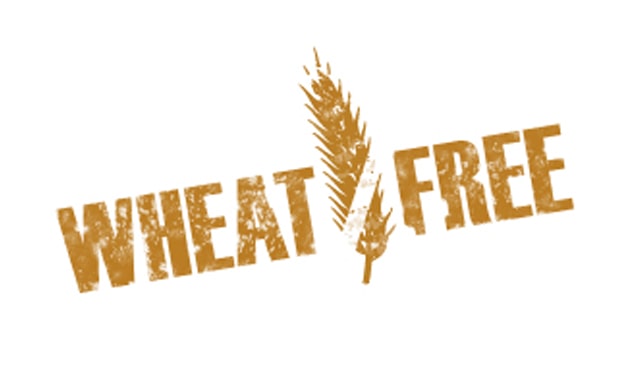Should You Go on a Wheat Free Diet?

A wheat free diet has many health benefits, but it’s important to know the facts. Here, our nutritionist Lucy-Ann Prideaux reveals all you need to know about wheat and healthy snacking.
Wheat and gluten are often used interchangeably, but it’s important to understand that whilst wheat and gluten do go hand in hand, they are two distinct different groups of proteins.
Gluten is not only present in wheat; it’s also present in other grains too, such as barley, rye, oats, spelt and kamut grain. Wheat (and therefore gluten), is present in thousands of everyday foods worldwide including breads and bread products, cakes, biscuits and bars, buns, pizzas, wraps, rolls and a great majority of processed foods.
As some of you may be aware, even simple packaged foods such as soups, ready meals and sweets contain fillers such as wheat flour, and therefore contain gluten too.
Why do so many choose to eat a diet free from wheat and gluten?
Here are some documented problems associated with eating wheat:
- Wheat is a common food allergen, causing digestive, immune-related, and weight problems in many.
- According to Dr William Davis, author of “Wheat Belly”, gluten also appears to be an appetite stimulant.
- Wheat is addictive. Gluten-derived polypeptides can cross into the brain and bind to the brain’s opiate receptors. The result is a mild euphoria after eating a product made with wheat.
- Wheat contains a starch called amylopectin A, which is quickly converted to blood sugar. This leads to a fast and high rise in blood sugar and insulin; commonly linked to the development of diabetes, weight gain and obesity.
- Wheat contains a particular lectin (a protein) called WGA. WGA is largely responsible for many of wheat’s ill effects such as gut inflammation, and digestive complaints.
- Recent research has shown that wheat consumption in “healthy normals” can cause a condition called leaky gut. Leaky gut tends to promote low-grade inflammation, which is an underlying characteristic of heart disease, cancer and autoimmune problems.
- High wheat-based diets often have a high glycaemic index, or “High GI”. High GI diets are linked to obesity and diabetes.
- Wheat contains a substance called phytate, which may lead to reduced absorption of minerals such as zinc and iron.
What about gluten specifically?
Gluten can pose a serious threat for those with a diagnosed gluten allergy, commonly known as coeliac disease. The protein acts like a poison to the lining of the gut, creating inflammation, damage and decay to the cells. As you might expect, this causes serious digestive and health complications.
However, what is becoming more common, and more apparent to doctors and other health professionals is the increasing incidence of gluten “intolerance” or sensitivity, whereby gluten is being identified as a significant contributor to health and gut problems (like leaky gut), even without a positive test for full-blown gluten allergy.
Why has gluten become such as a problematic dietary substance?
Here are some likely reasons:
- Our lack of genetic adaptation to grasses and grains, particularly wheat.
- The hybridisation of wheat, and the resulting higher gluten content of many common, everyday foods.
- The sheer volume of grains and grain-based foods in modern-day diets.
Are wheat and gluten causing you unnecessary problems?
The only way one can really tell if gluten, wheat, or any food or substance, is a significant cause of your health or gut problems, is to eliminate it from the diet. Whilst testing can certainly help identify gluten sensitivity, the only way a person will really know if gluten is problematic is by doing the gold standard “allergy test” – i.e. eliminating the suspect food for 2-4 weeks.
Gluten is the not the easiest thing to take out of the diet, although, given a little direction, it is certainly do-able. The results for many people are well worth the effort. Remember that gluten is not just present in wheat. It is part of other grains too, such as barley, spelt, rye and even oats, as well as many products. Whilst some gluten-intolerant individuals can tolerate some oats in the diet, I suggest trying one week totally gluten-free. Be very aware of the “hidden” sources of gluten like soups, soup mixes, tinned foods, and even non-food related products such as lipsticks.
The benefits of a wheat and gluten free diet
- Improved digestion and digestive function – a crucial aspect of effective weight loss is a healthy & efficient digestive system.
- Excess fluid loss, and weight loss
- Increased energy
- Better bowel function and elimination
- Improved mental function and better mood
Looking for tasty gluten free snacks?
Look no further than TREK bars. All of our products are gluten free and they’re made with natural ingredients. Our Protein Energy Bars are perfect when you need a natural energy boost. Our Protein Flapjacks are packed with gluten free oats and come in four delicious flavours. The newest member of the TREK family, Protein Nut Bars are packed with whole nuts, plant protein and tasty morsels like dark chocolate, seeds and fruit.





